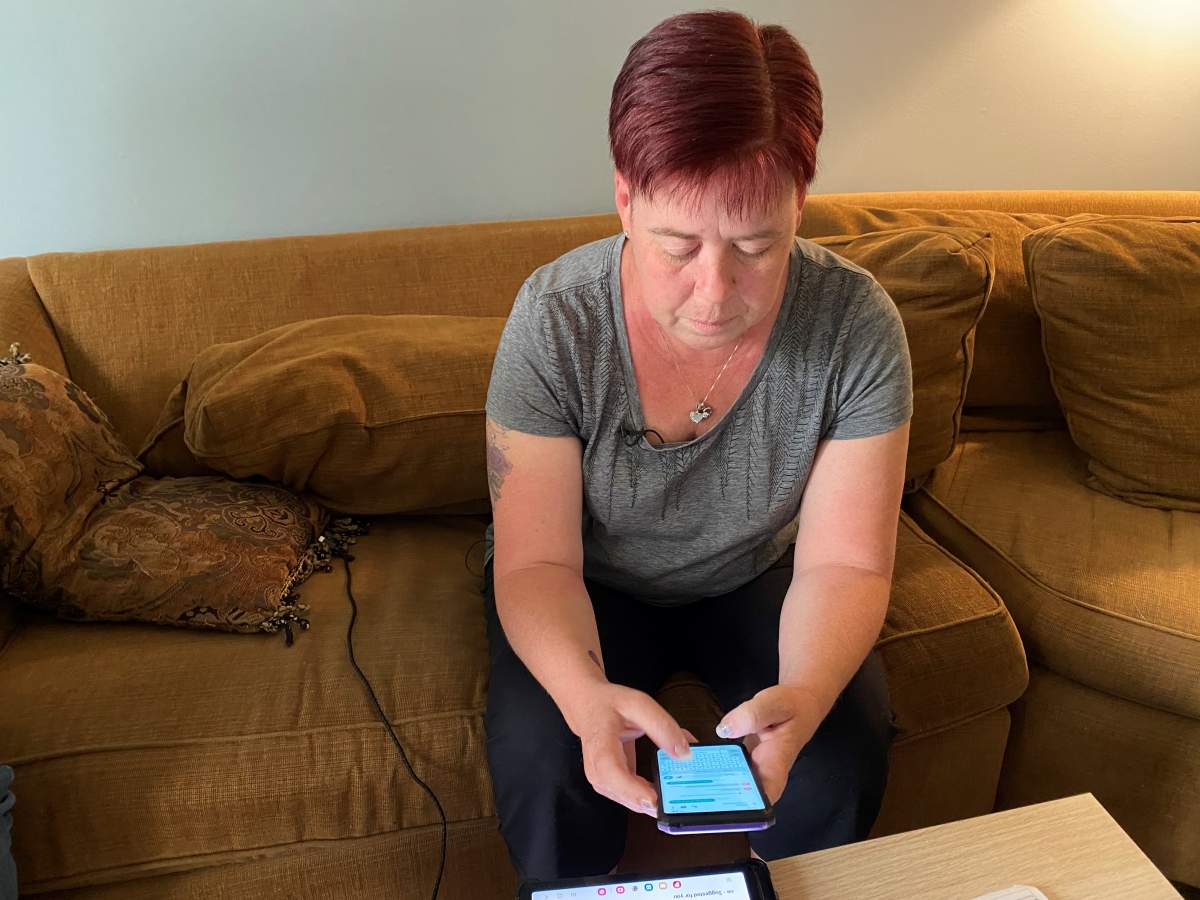A Calgary woman is issuing a warning after scammers used a bogus fraud story and a popular app to defraud her out of $2,500.

Jennifer Agnew said it all started after she got an automated call allegedly from Amazon. It said she was the victim of fraud and prompted her to press “1” to speak to a real person. A man, claiming to be a “fraud investigator” then came on the line.
She was told her account had been hacked and a package was on its way for delivery to a different city. If she didn’t stop it, she said she was told she would be on the hook for $1,000.
“I should have seen the red flags,” Jennifer Agnew told Global News.
“They asked me to install an app to put me on to their secure server so nobody else could hack into my account,” she said. “He was literally on the phone with me going step-by-step what to do on this app. “
Agnew installed the “AnyDesk” app. On its website, it states it is, “a legitimate application used by millions of IT professionals worldwide to remotely connect to their clients’ devices to help solve technical issues”.
But in this case, Agnew believed scammers used it to take over her phone — in real time.
“He (scammer) was right in my phone,” she said.
“At the time my boyfriend was texting me, ‘Get off the phone. I’m pretty sure this is a scam.’ And the guy on the other end was saying, ‘Why are you getting text messages? Why is your boyfriend telling you this is a scam?’”
By this time, Agnew also realized she was being scammed — but it was too late.
She had already transferred the money into a digital wallet she had been convinced to open on another app.

Get breaking National news
“Oh, they are smooth,” she told Global News. “They are smooth talkers. Very convincing.”
Agnew hung up and contacted police and her bank. She said her bank told her that since she “let” the scammers in, she was “out” her money.
Amanda Swain, with the Canadian Internet Registration Authority (CIRA), told Global News scams are on the rise. Swain said “bad actors” are being paid and incentivized to get creative and find novel ways to trick people out of their money.
That includes targeting sim cards and apps.
“Those apps have a lot of power,” Swain pointed out.
“If you’re going to install new software – especially at the recommendation of someone you don’t know — you have to ask yourself, ‘Is this something I should be doing?’ The answer is almost always no.”
Swain added a lot of these tech tools have dual purposes, and thieves know it.
“I may install it, or get my mom to install it, so I can help her trouble shoot some of her phone issues. A scammer can use it for the same methods — to try and extract information from you, extract payment from you.”
She suggested, again, that users remain skeptical.
“Be careful what apps you’re installing. Look at the reviews. Look at what kind of history they have. Who is the vendor that is producing that app?”
Global News reached out to AnyDesk to get its take on what happened. A spokesperson said, “…unfortunately sometimes people use our software for nefarious reasons. We’re constantly playing a game of cat and mouse trying to shut these operations down.”
Marketing manager Matthew Caldwell added the company currently has security prompts in place as well as certain restrictions to permissions when a suspicious connection is detected. However, he added, “… unfortunately the majority of time scammers use social engineering to get past these restrictions.”
Caldwell said as a result AnyDesk has started a task force and non-profit organization dedicated to stopping this type of fraud on a global level.
Amazon also sent Global News a statement: “Scammers that attempt to impersonate Amazon put sellers and consumers at risk. We will continue to invest in protecting consumers and educating the public on scam avoidance.”









Comments
Comments closed.
Due to the sensitive and/or legal subject matter of some of the content on globalnews.ca, we reserve the ability to disable comments from time to time.
Please see our Commenting Policy for more.